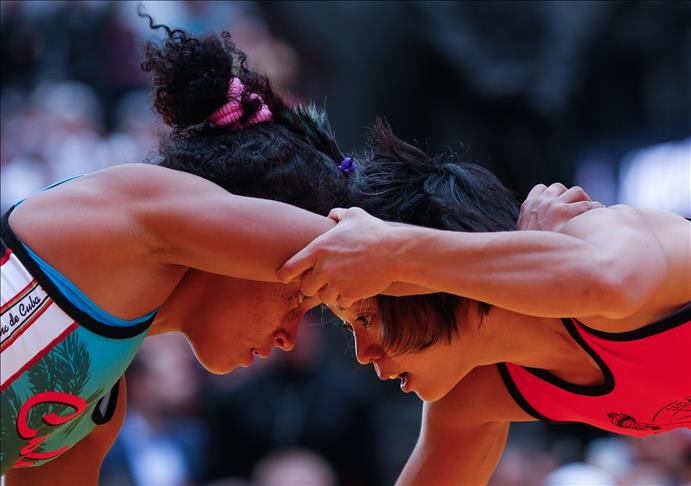The Indian Muslim woman teaching teens how to wrestle
Fatima Bano broke convention to become a wrestler and now is hoping to coach future Olympians

By Shuriah Niazi
BHOPAL, India
The career Fatima Bano has carved out in the male-dominated sport of wrestling is an unusual one for a Muslim woman in India.
Her religious background, middle-class family and home in the conservative city of Bhopal meant many considered unthinkable Bano's choice to enter a sport traditionally viewed as masculine.
“From the beginning, I loved challenges. When wrestling became popular in India, only men used to take part in it. Naturally, it went on to become a male-dominated sport," says Bano.
"I thought I should take it up as a challenge since no other woman had ever ventured into this field. I was a judo fighter at that time and many women were taking up judo but no one had heard of a female wrestler from India,” she says.
Bano had already professionally played Kabbadi, an Indian contact sport, and won medals as a judo fighter but her parents were still initially reluctant about her new choice of career. It was her then coach, and now husband, Shakir Noor who helped her build her into a famed figure in Indian wrestling.
“My [wrestling] ring was the oldest one in Bhopal. We used to train students there. In 1997, women’s wrestling was introduced for the first time and at that time we were not sure how this concept would fare in India," says Noor. "Although Fatima was a sportswoman, her family members were not ready to see her take part in wrestling.
"But the best part was that she was passionate about the game. Her family was against her decision of choosing wrestling as it was a male-dominated sport, and it was not at all possible for a Muslim woman to enter such a game.”
Opposition also initially came from some Muslim clerics who criticized for her entering the male-dominated sport; though their opposition subsided with time as Bano persisted, and succeeded, in pursuing the career.
In the past she has coached in America, Kazakhstan and Kyrgyzstan but her focus now is on India, where she thinks there is untapped potential. Her current crop of students is 27-strong with 12 girls and 15 boys; the goal is to get them into the Olympic games.
“I come from a rural background and I didn’t know much about wrestling. She brought me into this sport and for the last three years, I am training under her," says one of her students, Rani Rana. "She has trained me so well these past three years, I have been winning medals in national tournaments.”
At the last Olympics games, in London in 2012, Geeta Phogat became the first Indian woman to qualify for the wrestling but there are still concerns about the lack of funding for the sport, especially as most wrestlers come from underprivileged backgrounds, fighting in open rings rather than international-standard arenas.
Bano says however that, with a change in mindset, there is opportunity for the sport to grow.
“I believe many more girls should come forward in this game. There is great scope for them to succeed and realize their potential," she says." It’s not that those who play this game aren’t good people or that they need to sacrifice their culture. Sports and culture are two different things. Therefore, I hope more girls participate in this game and realize their dreams.”
Anadolu Agency website contains only a portion of the news stories offered to subscribers in the AA News Broadcasting System (HAS), and in summarized form. Please contact us for subscription options.







